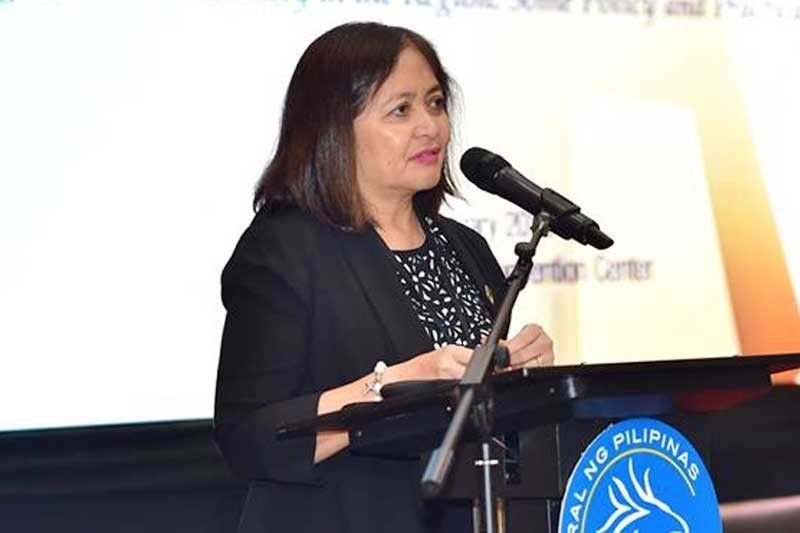Banks told to closely monitor transactions linked to tax crimes

MANILA, Philippines — The Bangko Sentral ng Pilipinas (BSP) has reminded banks to closely monitor and report suspicious transactions linked to money laundering and terrorism financing as the country ramps up efforts to be removed from the gray list of Paris-based Financial Action Task Force (FATF).
BSP Deputy Governor Chuchi Fonacier said banks should ensure proper submission of suspicious transaction reports (STRs) with possible links to tax crimes particularly those violating the National Internal Revenue Code of 1997 and with a tax deficiency exceeding P25 million.
In a circular, Fonacier said BSP-supervised financial institutions (BSFIs) should include the suggested tax-related keywords or phrases in the narrative STRs with possible links to tax crimes and other associated financial crimes or predicate crimes including corruption, fraud, intellectual property violations, among others.
“BSFIs are reminded to conduct commensurate measures and consider the results of the above reports in their institutional risk assessment as well as risk profiling of the real estate sector, to improve their overall anti-money laundering/counter- terrorism and proliferation financing framework,” Fonacier said.
In an analysis of STRs with possible links to tax crimes released in April, the Anti-Money Laundering Council (AMLC) uncovered P62.5 trillion worth of suspicious transactions from January 2018 to November 2020.
Based on an analysis of STRs with possible links to tax crimes conducted by the financial intelligence unit, about 92 percent of the 197,983 STRs filed between January 2018 and November 2020 contain “the amount involved is not commensurate with the business or financial capacity of the client.”
The remaining eight percent of the total STRs filed by covered persons pertain to various predicate crime or suspicious circumstance such as no underlying legal or trade obligation, purpose or economic justification as well as similar, analogous or identical transactions.
The AMLC believes the recent inclusion of tax evasion as a predicate offense under Republic Act 9160 or the Anti-Money Laundering Act (AMLA) of 2001 via RA 11521 or “An act further strengthening the anti-money laundering law” signed last Jan. 21 is another milestone for the Philippines.
The financial intelligence unit said covered persons including BSFIs should incorporate keywords or phrases on possible links to tax evasion or tax crimes such as taxable, taxation, tax evasion, tax fraud, possible tax evasion, tax fraud or tax crime, may relate to tax evasion, tax fraud or tax crime, transactions may be unreported for tax purposes, and income tax details deviate from the flow of transactions.
In a separate assessment on the real estate sector that is now covered by AMLA, the AMLC assessed a medium high overall money laundering, terrorism and proliferation financing risk level on the sector.
Based on STRs, money laundering investigations, and cases, the AMLC said real estate sector is more at risk to illegal drugs, corruption, and fraud, including Securities Regulation Code violations.
“Criminals potentially facilitate movement and hide illegal proceeds through the purchase of or investment in real properties. Assets are also used as clandestine hideouts for illegal operations,” the AMLC said.
For STRs related to terrorism financing, the financial intelligence unit said the analysis suggest financing of terrorism activities through transactions posing as real estate investments.
Based on the published report of the FATF, use of complex loans or credit finance, loan back schemes, back-to-back loan schemes, use of non-financial professionals and corporate vehicles, manipulation of appraisal of valuation of the property, and use of monetary instruments, are among the common methods identified on the use and misuse of the real estate sector to money laundering or terrorism financing.
Last June 25, the Philippines was included in the gray list or jurisdictions under increased monitoring due to strategic deficiencies in the money laundering as well as terrorist and proliferation financing regimes of global dirty money watchdog FATF.
AMLC chairman and BSP Governor Benjamin Diokno remains confident the Philippines would be removed from the gray list on or before January 2023 as it has largely addressed the action plans initially indicated in the 2019 Mutual Evaluation Report of the Asia Pacific Group (APG) on Money Laundering.
- Latest
- Trending






























